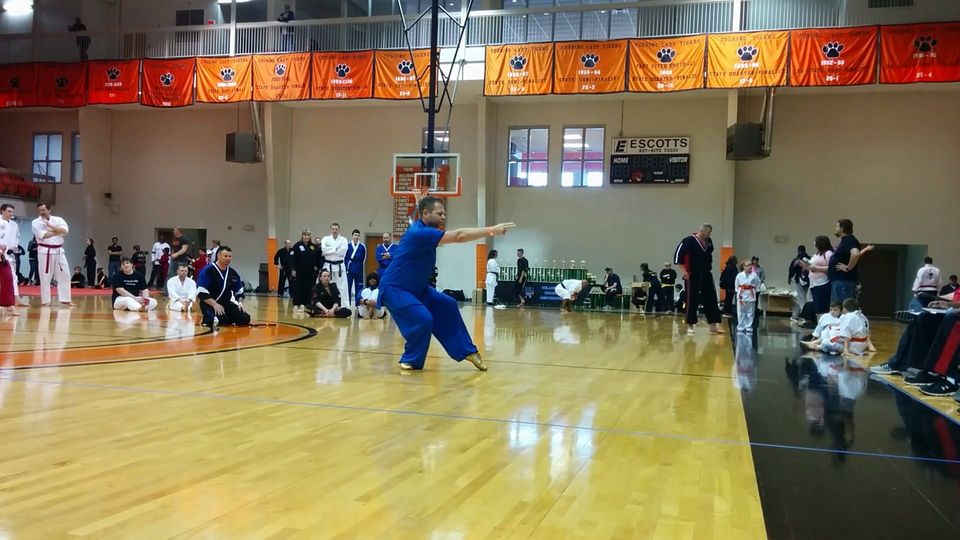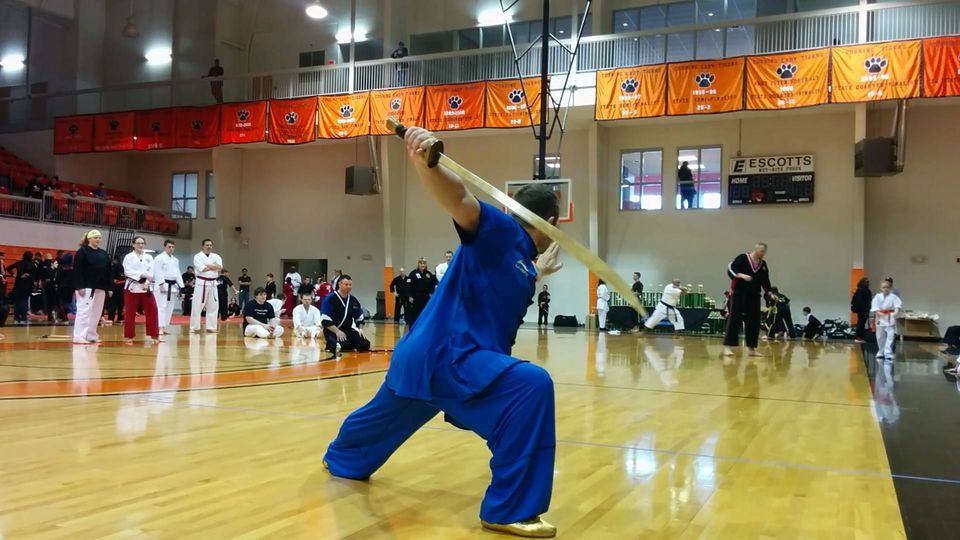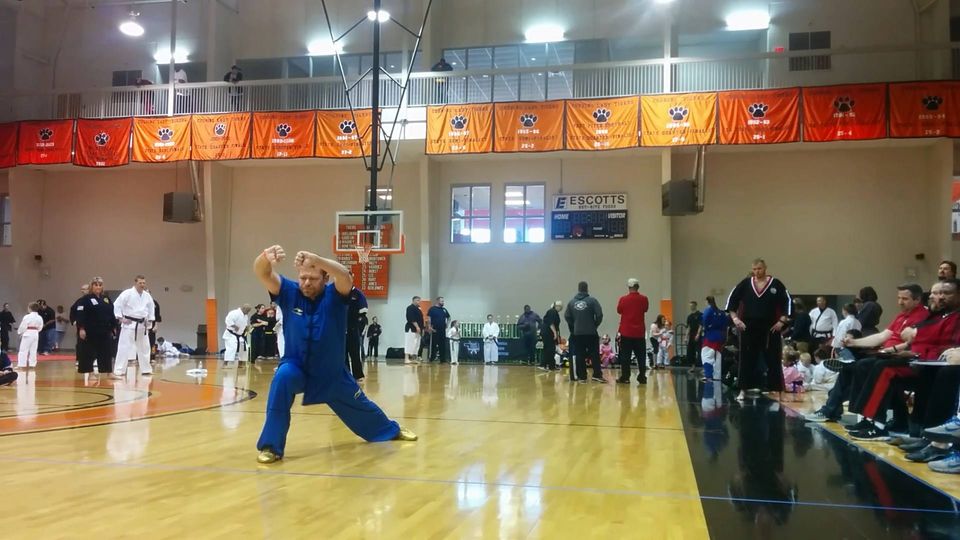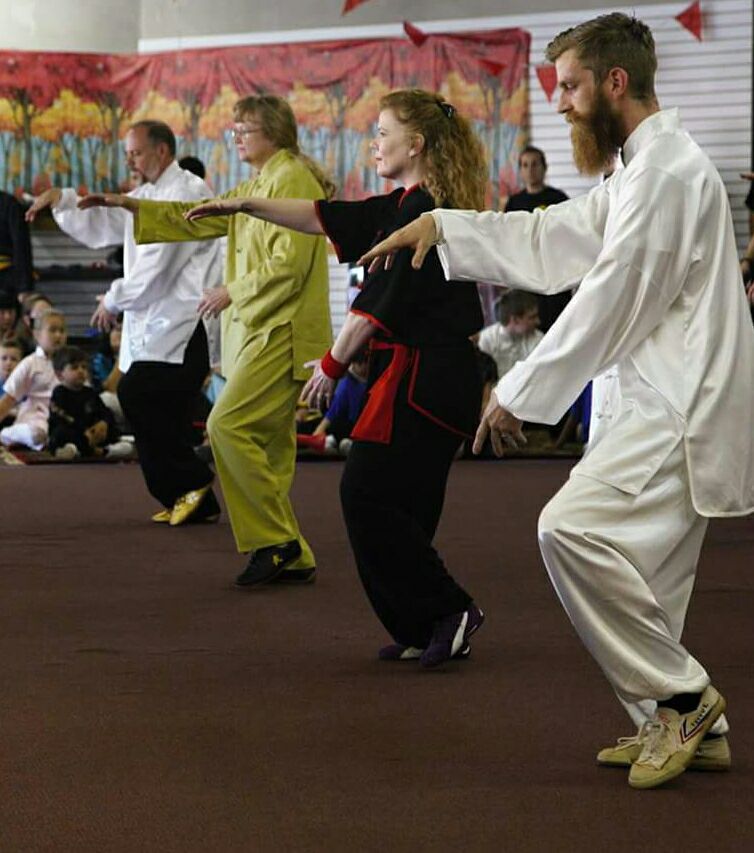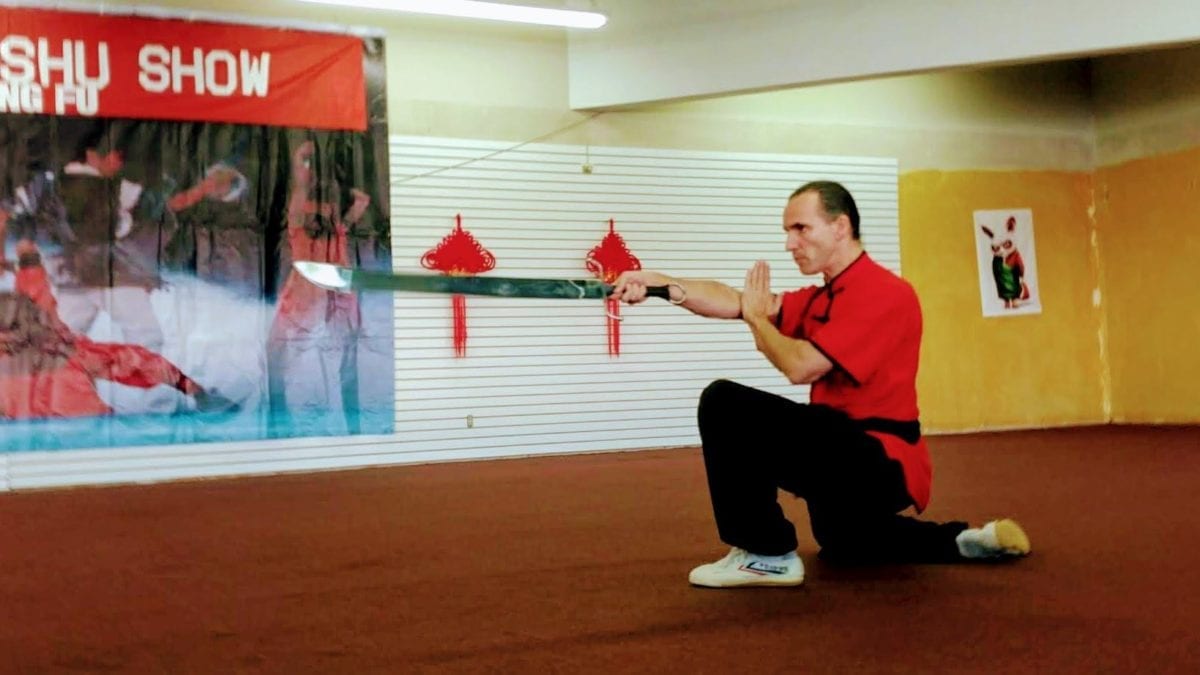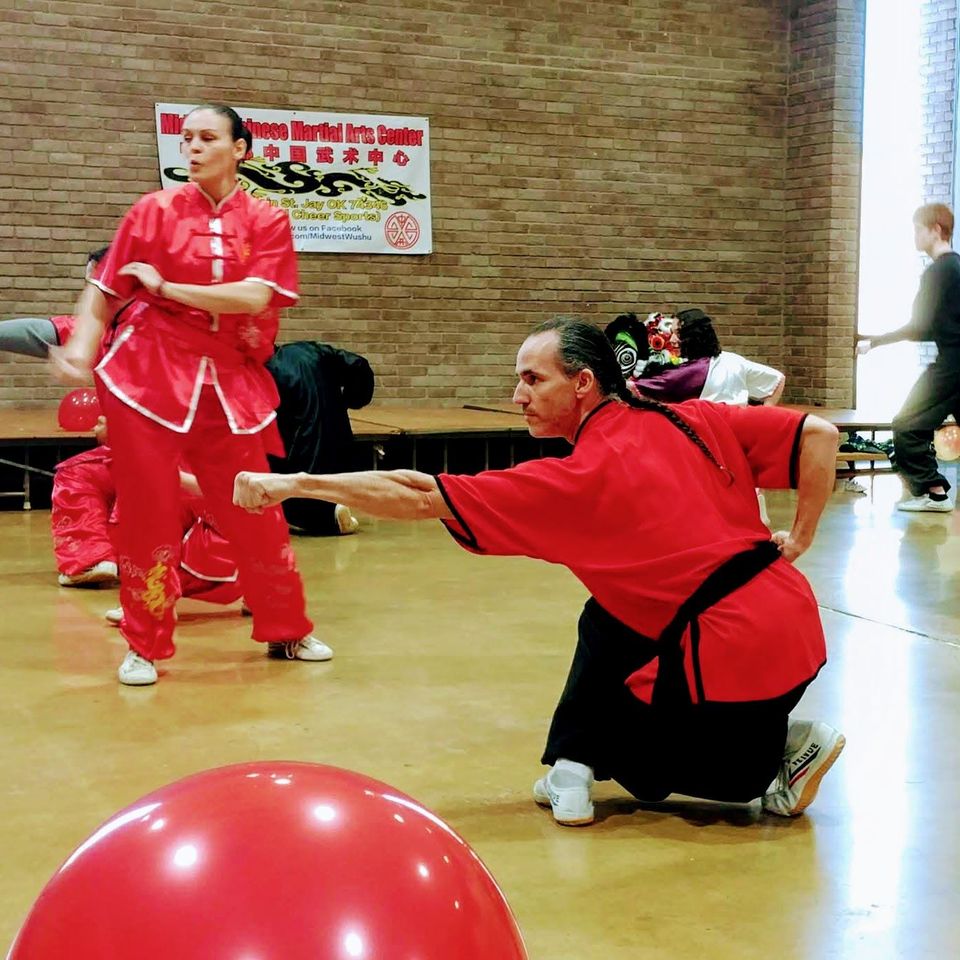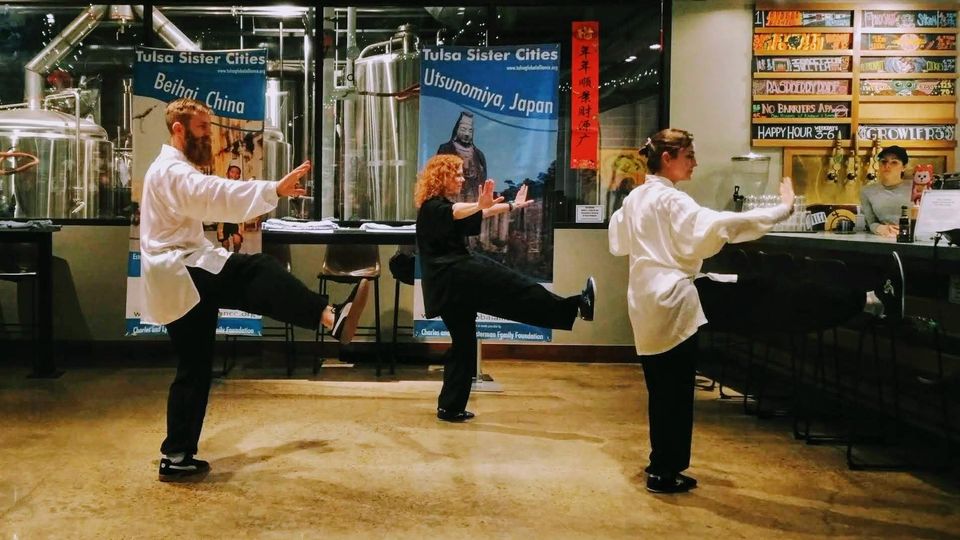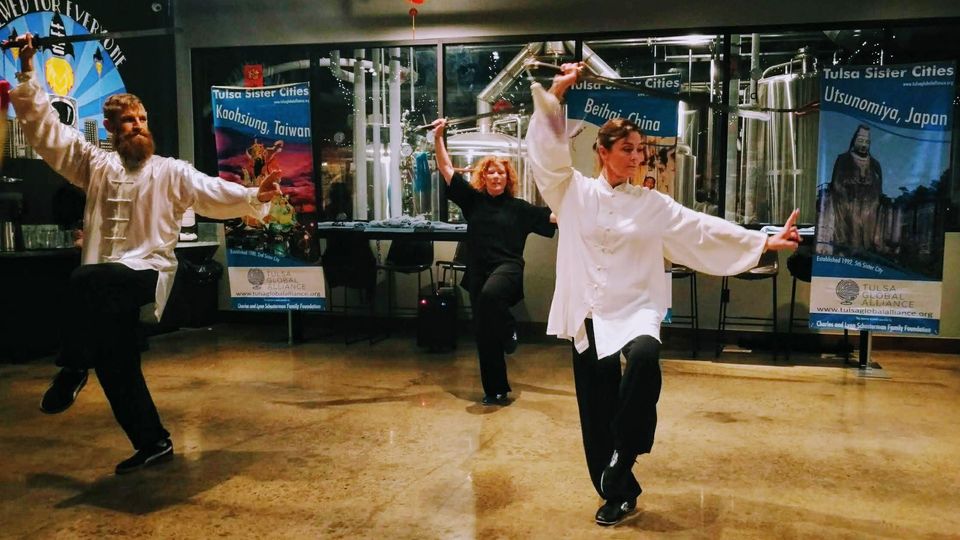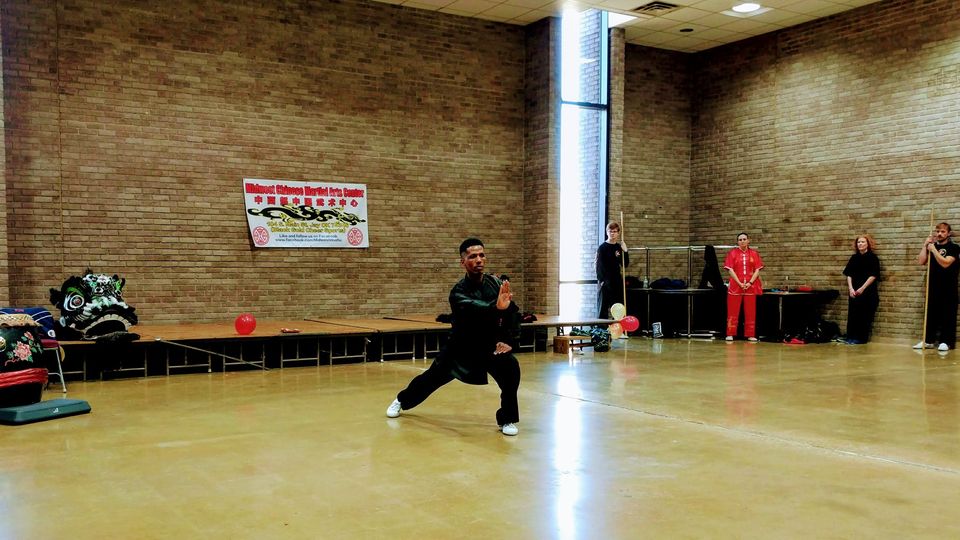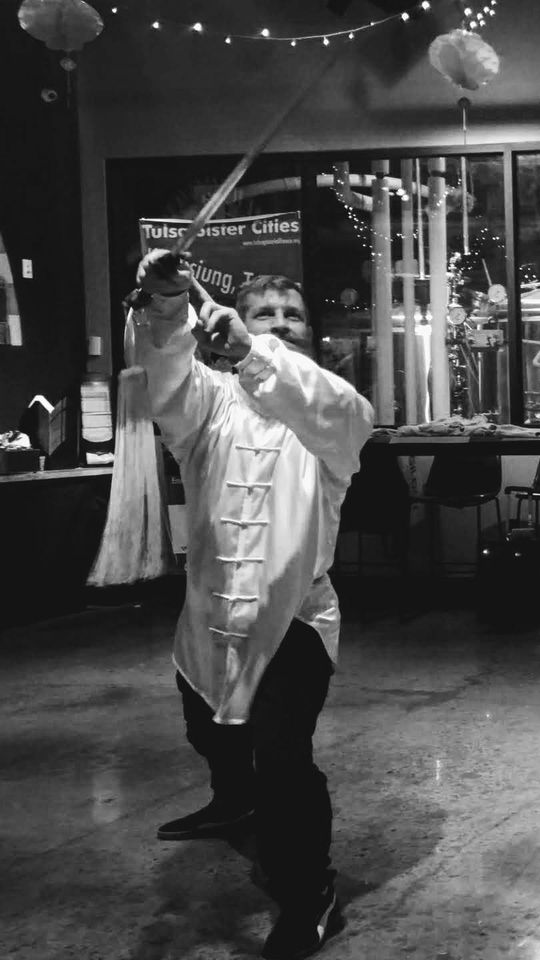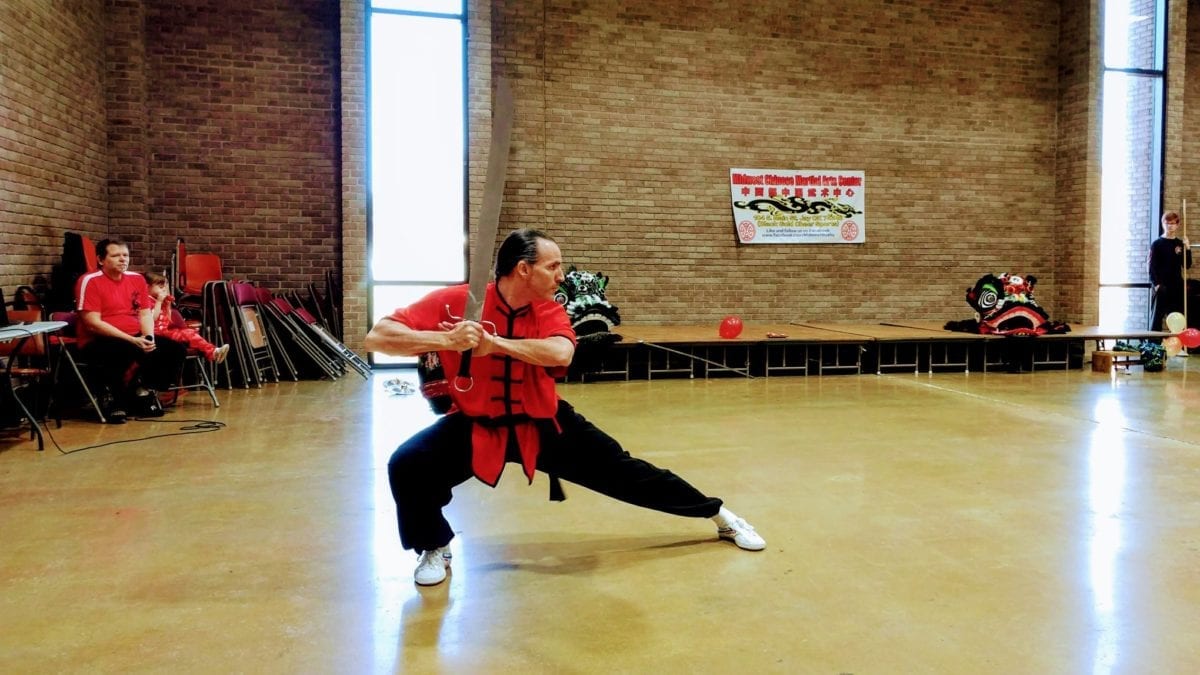Martial arts training is defined as codified systems and traditions of combat, practiced for a number of reasons, such as self-defense. Training requires frequent and close contact.
But in this era of COVID-19 protocols, with some people isolating and independently training, martial arts training has given an opportunity for academy operators to focus on presenting a regime that is mentally and physically healthful for participants.
That could mean contactless personal training, or it could mean actual physical contact.
At the Luohan Wushu Kung Fu Center in east Tulsa, Sifu Luo Minghan integrates the non-contact approach in youth and adult classes training in traditional and contemporary wushu/kung fu, tai chi and qu gong, along with senior tai chi.
Tai chi promotes serenity through gentle flowing movements. Recommended by the Mayo Clinic, tai chi is a non-competitive, self-paced system of gentle physical exercise and stretching.
“Tai chi is a moving meditation that enhances mindfulness and helps calm the anxieties of everyday life, even in these extraordinary times,” says Minghan. “And the mental focus required to master the kung fu movements channels our own energy into building our own strength and character.”
At the Oklahoma Martial Arts Academy in Edmond, the mental approach, especially self-discipline and control, factors in Brazilian jiu-jitsu training, but physical contact is still going to happen, says Janie Meadows, the academy’s owner and an instructor.
“With jiu-jitsu, you’re engaged with the sport, and it takes 100% of your focus,” she says. “You’re not thinking about everything 2020 has been. You’re so focused on yourself, even if it’s for a few rounds. It gives you time to unplug.”
The Oklahoma Martial Arts Academy also offers classes in kickboxing, boxing, mixed martial arts and women’s self-defense. Meadows says her academy follows guidelines set by the Centers for Disease Control and Prevention. But the close physical contact associated with their training courses means that participants must be comfortable knowing that everyone is following proper protocols.
Classes are smaller, and cleaning processes associated with facilities and equipment have been upgraded. The academy also added a COVID-19 section to its online waiver after the city of Edmond’s recommended guidelines for the reopening of the facility on May 4.
“We let the students and parents know that they’re participating in a close-contact sport, and in doing so, you’re doing it at your own risk,” says Meadows.
Photos courtesy Luohan Wushu Kung Fu Center
Masks are available and parents are not allowed to hang out at the academy while classes are in session, she says. Also, the academy staff requests that parents observe quarantining and testing if they have any symptoms.
Meadows says the academy has had strict hygiene and health rules since she opened it with her husband, Seth Norman, also a blackbelt instructor, in 2010.
“We do our best to keep an eye on students to see whether they’re showing symptoms,” she says. “So far, we haven’t had anything.”
At Luohan Wushu, contact is kept to a minimum. Minghan says his academy’s instruction lets students relax with balance-management exercises.
“It is very good for mental and physical health,” says Minghan. “It is easy to practice regularly and consistently, and there are many benefits to practicing, especially when we want to be with other people while spreading ourselves out and giving each other lots of space.
“It is an excellent practice to manage anxiety, and we can do it both inside and outdoors.”






















